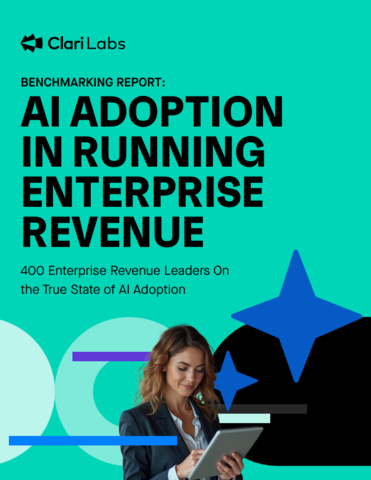How to stop wasting your AI investments
Sponsored by ABBYYDiscover how process AI and document AI enable agentic systems to drive autonomy and business value

Despite the rapid adoption of artificial intelligence (AI) across industries, nearly 40 per cent of AI investments fail to deliver measurable results. While companies race to automate, they often overlook the foundational processes and data necessary for AI-driven autonomy. Inadequate process alignment, siloed teams and lack of operational transparency undermine even the most advanced technologies.
The challenge is not the ability of AI systems themselves, but rather how they are integrated within organisational workflows and human expertise. Most agentic projects have been limited to co-pilots and personal productivity, but the most valuable use cases happen when tailored to improving and meeting business KPIs. AI is not a bolt-on feature just to be installed. It is a complete reimagining of how business systems flow. This process relies on a new class of agentic systems powered by process intelligence and document AI
Document AI, for example, is a transformative technology that converts unstructured data within documents into actionable insights by efficiently extracting, processing and validating information, and plays a crucial role in streamlining modern business workflows. This is especially useful within the healthcare industry, for example, as it provides hospital staff with the ability to make smarter patient decisions, offers clear visualisation of patient data and bypasses document-intensive processes traditionally done by hand.
Using this information, process intelligence bridges the gap between people, processes and technology by delivering real-time visibility, actionable insights and measurable impact. In healthcare, process intelligence helps caregivers and physicians to visualise end-to-end patient care and identify operational inefficiencies that may be impacting treatment plans. These are essential in enabling this transition from task-focused automation to situationally aware, agent-driven autonomy.
Understand, optimise, and empower: maximising agentic AI investment
One sure way businesses waste this investment is by skipping process discovery. This often automates the wrong steps or reinforces inefficiencies, which leads to a loss of $6.8 billion ROI on AI projects in 2024. Process intelligence addresses this by providing a data-driven architectural blueprint for AI implementation. Through advanced analytics, process intelligence maps workflows across departments, pinpoints chronic bottlenecks and identifies tasks that benefit most from intelligent automation.
For example in financial services, compliance workflows often combine manual checks with fractured digital processes. This combination increases the risk of identity theft, with Europol estimating that 2 to 5 per cent of global GDP is laundered annually. To help curb this issue, ABBYY Process Intelligence offers a unique take on know your customer (KYC) processes – a set of guidelines and regulations that financial institutions use to verify customers – to prevent criminal financial activities. ABBYY Process Intelligence takes KYC to a new level, allowing businesses to mitigate losses from fraud and penalties, accelerate responses to regulatory change and optimise the development of new relationships.
This seamless integration flags anomalies, recommends interventions and adapts pathways as regulations evolve. While this may seem like a massive overtake, attention to the details of these processes ensures that no information is overlooked, and customers can trust that their financial information is secure.
Ensure your automated systems are independent and thorough
When businesses favour processes with less detail to speed workflow, a drop in ROI is evident. Leaders continue to see that correctly adopting process intelligence and document AI in its full capacity into their workflows yields the highest return of their investments. This is especially evident among CEOs, where 63 per cent prefer their AI systems to work “right and slow” over “fast and wrong,” as found in a recent IBM Institute for Business Value survey.
Document AI bridges the gap workflows face when encountering unstructured data – contracts, invoices, emails or handwritten forms – enabling it to extract, interpret and apply information buried in documents. When combined with process intelligence, it empowers agentic systems to make independent decisions across end-to-end workflows. In banking, this system has been used successfully to overhaul loan approvals by:
- Extracting relevant applicant data from various formats such as office documents, images, email attachments and message bodies
- Validating completeness and compliance automatically
- Flagging insufficient information for review for underwriters
- Recommending automated remediation steps
- Simulating different outcomes, such as risk profiles or regulatory compliance, before initiating actions
This synergy of process intelligence and document AI sets the stage for truly autonomous, context-aware operations.
Autonomy relies on trust, transparency and adaptability
For agentic systems to thrive, they must operate within a framework that builds organisational trust, offers visibility and adapts to new business realities.
ABBYY’s partnership with Law Plus Data illustrates the value of agentic systems in action. Law Plus Data, an organisation that focuses on data privacy and AI governance, leveraged ABBYY process intelligence to automate audit trails, ensure ongoing compliance and adapt workflows as privacy laws changed. The result was enhanced trust, process transparency and a measurable reduction in manual intervention.
Markets are dynamic: regulations shift, customer expectations evolve and competitive pressures intensify. The benefit of incorporating agentic systems, powered by process and document AI, to business’s tech stacks is their ability to learn continuously. They do not remain static; they evolve, recalibrate and optimise paths in response to new patterns or disruptions across supply chains or legislative environments.
Embedding audit trails, monitoring outcomes and quickly surfacing exceptions reduces operational and compliance risks while instilling confidence in automated and autonomous decision-making. Using these tools allows decision makers to have access to real-time dashboards and auditable records of AI-driven decisions. This level of transparency is mandatory for regulated industries and invaluable in driving adoption across all business units.
Practical steps for adopting agentic systems
Adding AI to achieve an agentic and autonomous enterprise is easier than it seems. Companies committed to unlocking the full potential of AI should apply the following approach:.
Audit and map. Use process intelligence to create a digital twin of existing workflows, identifying pain points and automation priorities.
Integrate document AI. Prioritise document intelligence platforms capable of extracting insights from both structured and unstructured data.
Pilot autonomy in select areas. Start with processes that have clear goals and repeatable decision criteria, iterating as systems learn and improve.
Invest in transparency tools. Equip stakeholders with clear, actionable analytics and auditable trails to foster adoption and regulatory confidence.
Scale and adapt. Use feedback to fine-tune autonomy, expanding to more complex workflows and integrating human oversight as exceptions arise.
Synchronising people, processes and technology
All too often, organisations view people, processes and technology as separate elements of their strategy. However, their alignment is what determines the success of AI. Simplifying workflows and ensuring harmony between human expertise and automation transforms AI from a technical tool into a business enabler.
Process intelligence and document AI solutions are at the core of the journey from automation to autonomy. They do not just enhance operational efficiency, they enable a new era in which agentic systems drive clarity, consistency and sustainable growth.
If you’re ready to stop wasting AI investments and truly optimise your workflows, explore The Five Must-Haves for a Process Intelligence solution and achieve clarity to start unlocking ROI today.
Don’t wait – step into a smarter, synchronized future where AI delivers on its full potential.
By Jon Knisley, Process AI Strategy & Operations Leader at ABBYY

Business Reporter Team
You may also like
Most Viewed
Winston House, 3rd Floor, Units 306-309, 2-4 Dollis Park, London, N3 1HF
23-29 Hendon Lane, London, N3 1RT
020 8349 4363
© 2025, Lyonsdown Limited. Business Reporter® is a registered trademark of Lyonsdown Ltd. VAT registration number: 830519543





